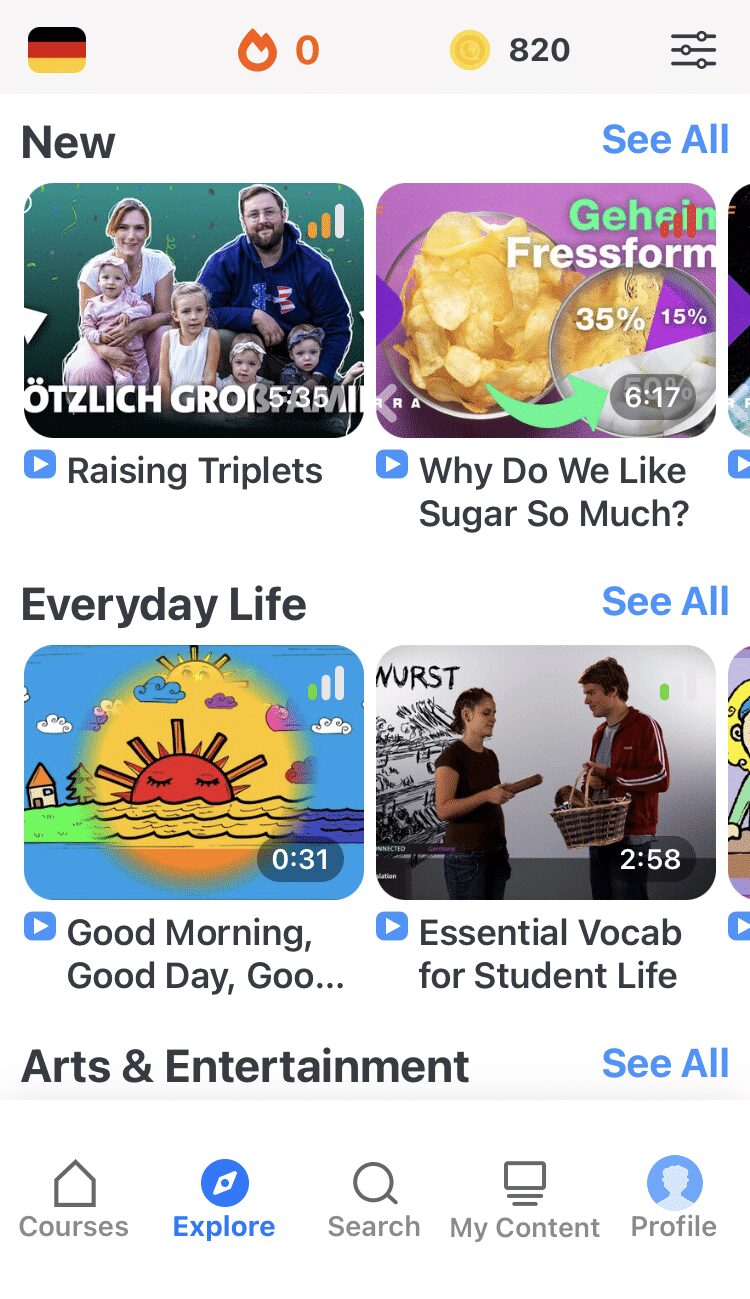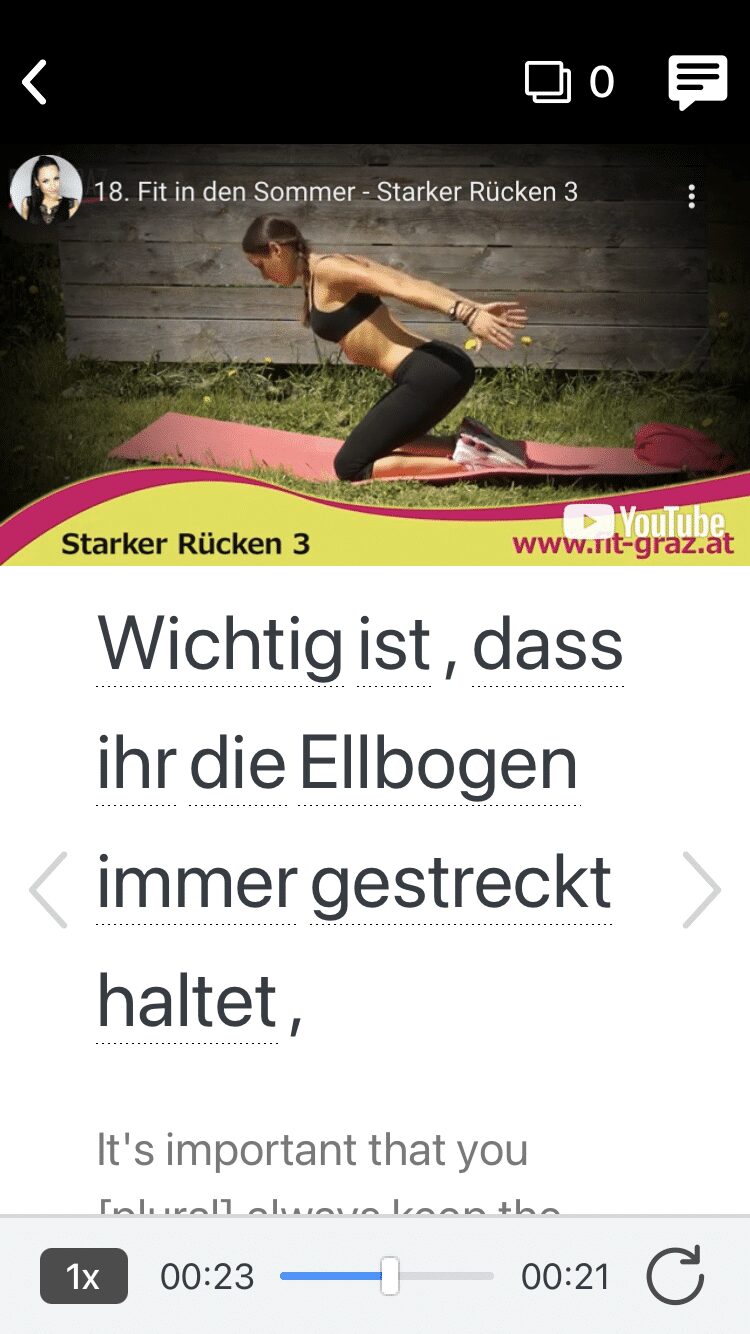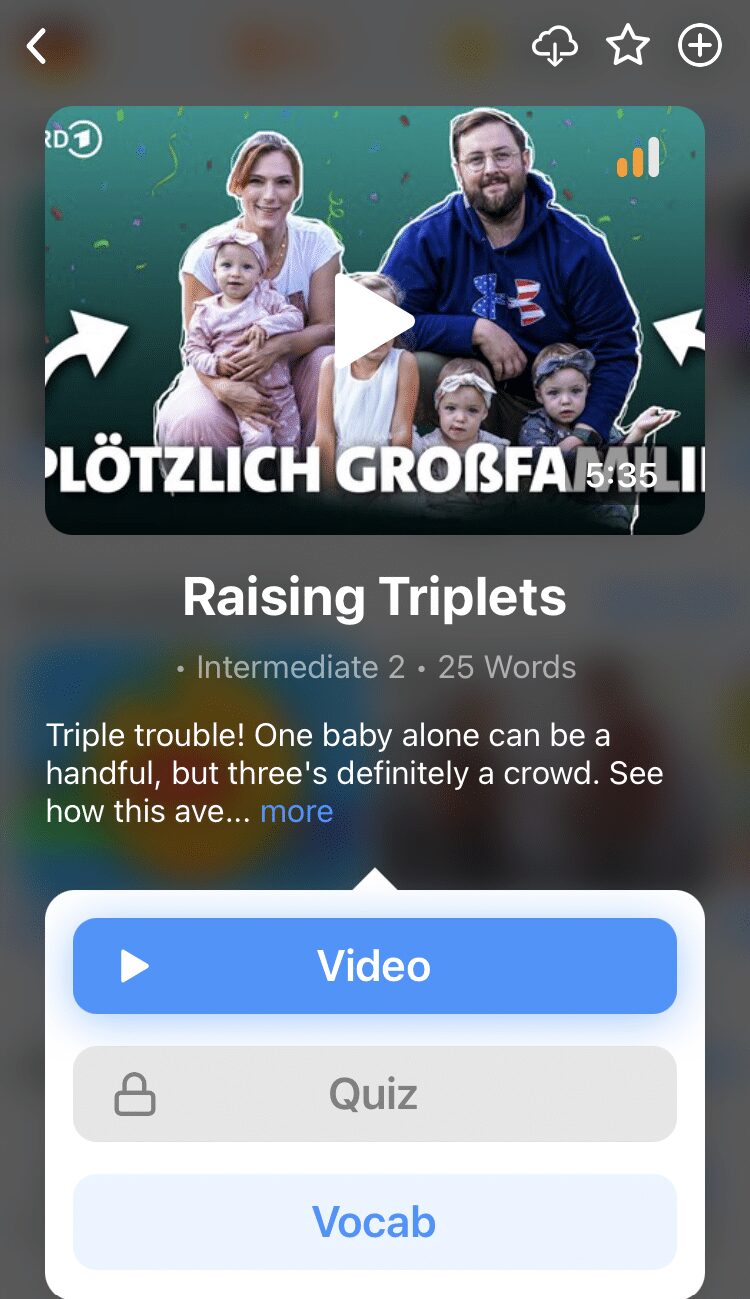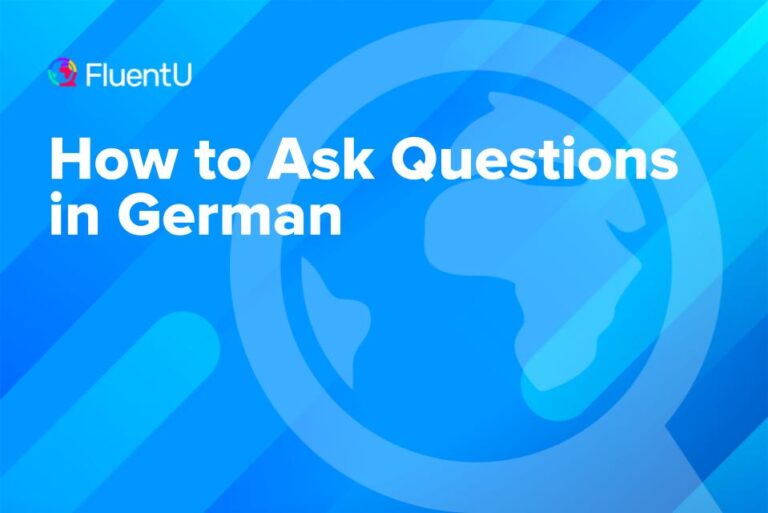How to Conjugate German Verbs in the Present Tense
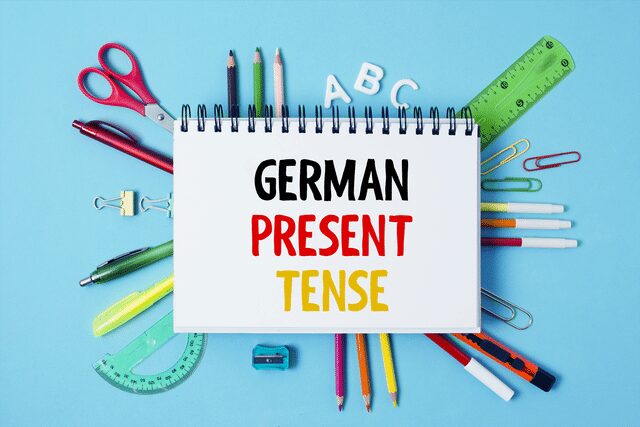
If you’re ready to start speaking in full German sentences, then there’s no time like the present for some German present tense lessons.
The present tense is, thankfully, a pretty easy topic in German. In fact, when I first learned it, I was relieved at how relatively simple it was compared to English present tense.
In this guide, I’ll be showing you how to transform German verbs into their right grammatical forms to talk about anything being done right now.
Download: This blog post is available as a convenient and portable PDF that you can take anywhere. Click here to get a copy. (Download)
What Is the Present Tense?
In grammar, you use present tense when you’re talking about something you’re doing at the moment or something that happens often.
Verb conjugation for the present tense depends on the verb itself. There are different types of verbs and each verb type follows different conjugation rules.
The rules primarily involve modifying the verbs’ stems and endings. The stem is the “front half” of a verb, and the ending is the remaining half. It’s easy to tell which is which, since the ending for infinitive forms of verbs is always -en or -n. (eg; gehen, lachen, vermitteln)
I’ll go over the major different German verb categories and how present tense works for each.
How to Conjugate Regular German Verbs
Regular verbs in German are called as such because their conjugations follow relatively consistent rules.
Most German verbs are regular. You’ll find them a lot easier to learn than other verb types, which have more finicky conjugations.
The basic conjugation rule is to remove the –en or -n ending from the infinitive form of the verb, and replace it with the ending that corresponds with the pronoun.
For regular verbs, you only need to memorize these six endings:
| Pronoun | Verb Ending |
|---|---|
| ich (I) | -e |
| du (you, informal) | -st or -est (if verb stem ends in -d or -t) |
| er/sie/es (he/she/it) | -t or -et (if verb stem ends in -d or -t) |
| wir (we) | -en |
| ihr (you, plural informal) | -t or -et (if verb stem ends in -d or -t) |
| Sie (you, formal) | -en |
| sie (they) | -en |
As noted, an extra “e” is added to the verb conjugations for du, ihr, Sie and sie if the verb stem ends in either -d or -t. This makes the resulting verb form easier to pronounce.
Want proof? Let’s take the verb arbeiten (to work). Try to say Du arbeitst—it doesn’t work very well, right? Du arbeitest rolls off the tongue much more easily and won’t make you have to clench your teeth to say it.
Also note that verbs whose stems end in the “hissing” consonants (s, ß/ss, z or x) will not get the typical –st ending in their du pronoun conjugation. Those consonants replace the “s” of the –st ending they would have gotten. So, when taking the verb tanzen (to dance) as an example, the correct conjugation is du tanzt, not du tanzst.
Now here are a few examples of regular verbs conjugated to present tense:
How to Conjugate Irregular German Verbs
German irregular verbs, unlike regular verbs, don’t have one consistent conjugation pattern.
Unfortunately, there’s no real trick to differentiating between irregular verbs and regular verbs just by glancing at their infinitive forms. In my German lessons, I was simply given a list of irregular verbs to memorize.
But no need to despair, because when it comes to the present tense, there’s fortunately a typical overarching pattern you can work with.
Many irregular German verbs require a change in the verb’s stem. This effect mainly applies to the verb conjugations for the pronouns du and er/sie/es. The plural pronouns receive regular conjugations.
The typical stem vowel changes are: e to ie, e to i, or a to ä. Only one vowel is changed, and you’ll likely be able to figure out which one at first glance. Here’s a helpful resource that categorizes the irregular verbs by their stem-changing vowels.
But besides the stem-change, you utilize the same endings that replace the infinitive -en or -n of regular verbs:
| Pronoun | Verb Ending |
|---|---|
| ich (I) | -e |
| du (you, informal) | -st or -est (if verb stem ends in -d or -t) |
| er/sie/es (he/she/it) | -t or -et (if verb stem ends in -d or -t) |
| wir (we) | -en |
| ihr (you, plural informal) | -t or -et (if verb stem ends in -d or -t) |
| Sie (you, formal) | -en |
| sie (they) | -en |
Note that, unlike for regular verbs, irregular verbs who experience a stem-vowel change, and whose stems end in –d or –t, don’t get a preceding “e” in their du and er/sie/es verb conjugations. For example, for the verb raten (to guess), you would say du rätst and er/sie/es rät.
Similar to regular verbs, irregular verbs whose stems end in s, ß/ss, z or x will just receive a –t ending in their du pronoun conjugation.
Here are some examples of conjugated irregular verbs:
You can see how different German verbs are conjugated in context with FluentU.
FluentU takes authentic videos—like music videos, movie trailers, news and inspiring talks—and turns them into personalized language learning lessons.
You can try FluentU for free for 2 weeks. Check out the website or download the iOS app or Android app.
P.S. Click here to take advantage of our current sale! (Expires at the end of this month.)
How to Conjugate sein, haben and werden
These verbs belong in their own little section because they’re a bit unique.
The verbs sein (to be), haben (to have) and werden (to become) can work as the lone verb in a sentence, but they can also function as auxiliary verbs. These are “helper verbs”‘ that often accompany a main infinitive verb.
These three verbs are essential to conversation, so it’s critical that you know their conjugations.
While these are technically considered irregular verbs, they don’t exactly follow the rules I mentioned earlier. There isn’t really a consistent conjugation pattern among these verbs.
Each take on their own unique forms, so you’ll just have to individually memorize them:
As you can see, these verb conjugations seem to have minds of their own! There are changes in the vowels and endings abound. But if you squint, you can probably see a few recurring themes.
For example: the endings for the du pronoun conjugations end in –st, just like with standard regular and irregular verbs. Additionally, the pronouns wir and Sie share the same verb conjugations.
As irksome as they can be, I guarantee that you’ll learn these conjugations quickly since you’ll be using them very frequently! So long as you keep practicing German, they’ll be ingrained in your brain in no time.
How to Conjugate German Modal Verbs
German modal verbs are auxiliary verbs that help you express desire, possibility or obligation.
While they’re technically within the “irregular verb” category, they’re mild rebels and don’t exactly follow the earlier-mentioned conjugations rules.
There are six German modal verbs: sollen (should), dürfen (may), können (can), müssen (must), wollen (want) and mögen (like).
The basic conjugation rule for modal verbs requires a vowel stem-change only for singular pronouns (ich, du and er/sie/es).
The verb conjugations for ich and er/sie/es don’t have pronoun-unique endings. In fact, they don’t really have an ending at all.
But there’s one exception: sollen is the only verb to not get a vowel stem-change conjugation.
Modal verbs are crucial to learn. They let you say things essential to daily life, like “May I go to the bathroom?”, “Can you help me?” or “I need to go to hospital.”
Learning German present tense can take some time, but once you master it, you’ll be able to take your first real steps into German conversation.
Keep in mind that there are just a few exceptions to the rules I’ve described with a couple of trickster verbs.
Viel Glück (good luck) and remember to practice, practice, practice!
And One More Thing...
Want to know the key to learning German effectively?
It's using the right content and tools, like FluentU has to offer! Browse hundreds of videos, take endless quizzes and master the German language faster than you've ever imagine!
Watching a fun video, but having trouble understanding it? FluentU brings native videos within reach with interactive subtitles.
You can tap on any word to look it up instantly. Every definition has examples that have been written to help you understand how the word is used. If you see an interesting word you don't know, you can add it to a vocabulary list.
And FluentU isn't just for watching videos. It's a complete platform for learning. It's designed to effectively teach you all the vocabulary from any video. Swipe left or right to see more examples of the word you're on.
The best part is that FluentU keeps track of the vocabulary that you're learning, and gives you extra practice with difficult words. It'll even remind you when it’s time to review what you’ve learned.
Start using the FluentU website on your computer or tablet or, better yet, download the FluentU app from the iTunes or Google Play store. Click here to take advantage of our current sale! (Expires at the end of this month.)

